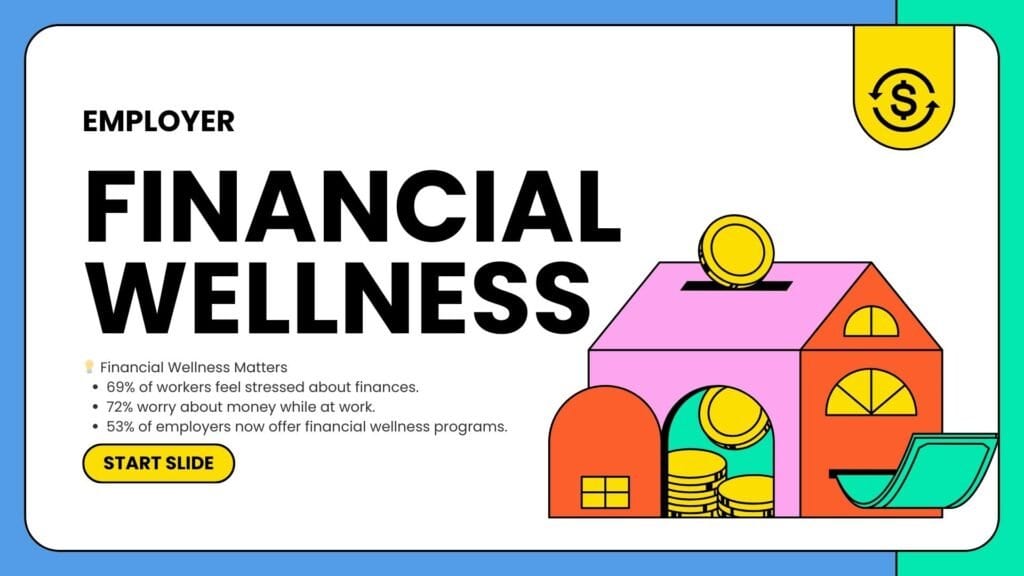Understanding and Improving Your Credit Score: Key to Financial Success

What is a Credit Score?
A credit score is a three-digit number that reflects your creditworthiness—essentially, it shows how risky you are as a borrower. The most common credit scores, like FICO and VantageScore, range between 300 and 850. The higher your score, the more likely you are to receive better loan terms, including lower interest rates. On the other hand, a lower score could mean higher interest rates or even denials for credit applications.
Credit scores are calculated based on your financial history, including how well you’ve managed your debts, how much credit you’re using, and the length of time you’ve had credit. Understanding how credit scores work is key to improving them, which can result in a wide range of financial benefits.
Why is Your Credit Score Important?
Your credit score doesn’t just affect your ability to get loans. It plays a significant role in many aspects of your financial life:
- Loan and credit approvals: Lenders use your credit score to determine whether you qualify for loans, credit cards, and mortgages.
- Interest rates: A higher credit score usually translates to lower interest rates on loans and credit cards, saving you money in the long run.
- Housing: Landlords often check your credit score to determine whether you’re a reliable tenant.
- Employment: Some employers, especially in finance, may review your credit score as part of the hiring process.
By maintaining a good credit score, you increase your chances of getting approved for loans and securing better terms. In contrast, a poor credit score can limit your options and increase your borrowing costs.

The Five Main Factors that Impact Your Credit Score
There are five major factors that contribute to your overall credit score. Understanding these will help you develop a strategy to improve your score and keep it in good standing.
1. Payment History (35%)
Payment history is the most critical factor affecting your credit score. It accounts for 35% of your total score, making it essential to consistently pay your bills on time. Lenders want to see that you have a solid track record of repaying debts, as this demonstrates financial responsibility.
- How it affects your score: Missing a payment or being late can cause a significant drop in your credit score. Even one late payment can stay on your credit report for up to seven years.
- How to improve: Set up automatic payments or reminders to ensure you never miss a due date. If you’re struggling to make a payment, reach out to your creditor to discuss alternative options before it’s late.
2. Credit Utilization (30%)
Credit utilization refers to the amount of credit you’re using relative to your total available credit. This factor makes up 30% of your credit score, so keeping your balances low is crucial for maintaining or improving your score.
- How it affects your score: A high credit utilization rate—above 30%—can signal to lenders that you rely too much on credit, making you a riskier borrower. Keeping your utilization low (ideally under 10%) is one of the quickest ways to improve your credit score.
- How to improve: Pay down your credit card balances and avoid maxing out your credit limits. If possible, try to spread your spending across multiple cards to keep your utilization rate low on each one.
3. Length of Credit History (15%)
The length of your credit history accounts for 15% of your overall credit score. This factor considers the age of your oldest credit account, the average age of all your accounts, and how long specific accounts have been open.
- How it affects your score: The longer you’ve had credit, the better. Lenders like to see a long, positive credit history because it demonstrates that you’ve successfully managed credit over time.
- How to improve: Keep your oldest credit cards open, even if you’re not actively using them. Closing older accounts can lower the average age of your credit history, which can hurt your score.
4. New Credit (10%)
Opening new credit accounts can impact your score, as it accounts for 10% of your total credit score. Every time you apply for new credit, a hard inquiry is made on your credit report, which can temporarily lower your score.
- How it affects your score: Applying for multiple new credit accounts in a short period can be seen as a red flag by lenders, indicating that you may be financially unstable or desperate for credit.
- How to improve: Avoid applying for multiple credit cards or loans at once. Instead, space out applications to minimize the impact on your score.
5. Credit Mix (10%)
Your credit mix refers to the different types of credit you have, such as credit cards, mortgages, and auto loans. This factor makes up 10% of your credit score.
- How it affects your score: Lenders like to see that you can manage different types of credit responsibly. A balanced mix of installment loans (like car loans or mortgages) and revolving credit (like credit cards) can improve your score.
- How to improve: If you only have one type of credit, consider adding another (like a small personal loan) to diversify your credit mix. However, only take on new credit if you really need it.

Credit Score Ranges Explained
Credit scores fall into different categories, each of which has its own implications for your financial opportunities:
- 300-579 (Poor): You may have difficulty getting approved for loans or credit cards. If you do, it will likely come with high interest rates.
- 580-669 (Fair): You can qualify for some credit products, but with less favorable terms.
- 670-739 (Good): You’re likely to be approved for credit at decent interest rates.
- 740-799 (Very Good): You can qualify for loans with better terms and lower interest rates.
- 800-850 (Excellent): You’ll have access to the best loan options with the lowest interest rates.
Why You Should Monitor Your Credit Score
Monitoring your credit score regularly is one of the best ways to stay on top of your financial health. Keeping track of your score can help you identify potential problems early, such as fraudulent activity or errors on your credit report. Additionally, you’ll be able to see how your actions—like paying down debt or opening a new credit account—affect your score over time.
Many services, such as Credit Karma, offer free credit monitoring, allowing you to check your score without affecting it. For entrepreneurs and small business owners, Credit Karma for Business can offer valuable insights into business credit as well.
How to Improve Your Credit Score: Step-by-Step Guide
Improving your credit score requires consistent, responsible financial behavior over time. Here are some steps you can take to start boosting your score:
1. Pay Your Bills on Time
Paying your bills by their due dates is the most important thing you can do to improve your credit score. Late or missed payments can drastically lower your score, while on-time payments show lenders that you’re a responsible borrower.
- Tip: Set up automatic payments for your bills to ensure they’re paid on time, even if you forget.
2. Reduce Your Credit Card Balances
High credit utilization is one of the quickest ways to tank your credit score. To improve it, work on paying down your credit card balances.
- Tip: Aim to keep your utilization rate below 30%, but for optimal results, try to keep it under 10%.
3. Keep Old Credit Cards Open
The length of your credit history matters, so it’s often better to keep old credit accounts open—even if you don’t use them regularly. Closing an account can reduce the average age of your credit accounts, which could lower your score.
- Tip: If you have an old credit card you no longer use, keep it open to maintain the length of your credit history.
4. Limit New Credit Applications
Opening multiple new credit accounts in a short period can hurt your score. Each application results in a hard inquiry, which temporarily lowers your score.
- Tip: Only apply for new credit when necessary, and avoid applying for several accounts at once.
5. Diversify Your Credit Mix
Lenders like to see that you can manage different types of credit. If you only have revolving credit (like credit cards), consider adding an installment loan (like a car loan) to your credit mix.
- Tip: Don’t take on unnecessary debt just to diversify your credit mix. Only borrow what you need and can comfortably repay.
6. Regularly Monitor Your Credit Report
Errors on your credit report—such
as incorrect account balances or late payments that you never missed—can drag down your credit score. Regularly monitoring your credit report allows you to catch these mistakes early and dispute them with the credit bureaus.
- Tip: You’re entitled to a free credit report from each of the three major bureaus—Experian, Equifax, and TransUnion—once a year. Take advantage of this and review your reports for any inaccuracies.
7. Consolidate Debt if Necessary
If you have high-interest debt spread across multiple credit cards, it might be beneficial to consolidate that debt into a single, lower-interest loan. This can help you pay off your balances more quickly and reduce your credit utilization.
- Tip: Be cautious when consolidating debt. Ensure that you are not just moving balances around without a plan to pay them down efficiently.
Why Managing Your Credit Score is Important for Financial Health
Maintaining a strong credit score is essential for unlocking financial opportunities. A high credit score gives you access to lower interest rates, better loan terms, and even approval for higher credit limits. Conversely, a low score can limit your borrowing options and result in higher costs over time.
For example, someone with a credit score of 800 or higher might qualify for a mortgage with a 3% interest rate, while someone with a score of 650 might only be able to secure a loan with a 6% interest rate. Over the life of a loan, this difference can add up to tens of thousands of dollars in extra interest payments.
Beyond borrowing, your credit score can impact other areas of your life, such as:
- Renting an apartment: Many landlords check your credit score as part of their screening process. A low score might make it harder to secure a lease or result in a higher security deposit.
- Employment opportunities: Some employers, particularly in the financial sector, review credit reports as part of their hiring decisions. A poor credit history could be a red flag for roles that involve managing money or sensitive information.
- Utility services: Some utility companies check credit scores before setting up new service accounts. A low score might mean having to pay a security deposit or higher service fees.
Improving your credit score is not just about financial freedom—it’s about long-term stability and access to better opportunities across various aspects of your life.
How Long Does it Take to Improve Your Credit Score?
Improving your credit score is not an overnight process, but with consistency, you can see significant improvements within a few months. The amount of time it takes depends on where you start and what steps you take to improve it.
- Quick improvements: Paying down high credit card balances can have a noticeable impact within 30-60 days, as long as your credit utilization is lowered.
- Longer-term improvements: Building a history of on-time payments and managing your accounts responsibly can lead to steady improvements over 6 to 12 months.
If you’ve experienced major negative marks like bankruptcy or foreclosure, it may take longer—typically seven years—for these events to fade from your credit report. However, by practicing good credit habits in the meantime, you can begin improving your score gradually.
Common Credit Score Myths Debunked
1. Checking your own credit score hurts your score
Many people believe that checking their credit report will lower their score. This is not true. Soft inquiries, like checking your own score or when a potential landlord checks your credit, don’t affect your score. Only hard inquiries, which occur when you apply for new credit, can lower your score.
2. Closing a credit card will improve your score
Closing a credit card often has the opposite effect. When you close a credit card, you reduce the amount of available credit you have, which can increase your credit utilization ratio. Additionally, closing an older account can reduce the average age of your credit accounts, which can also hurt your score.
3. Carrying a balance helps your score
Carrying a balance on your credit cards doesn’t help your score—in fact, it can hurt it. Credit utilization is an important factor in your score, and carrying a high balance can negatively affect your score. The best approach is to pay off your balances in full each month.
4. Paying off a loan early always helps your score
While paying off debt is generally good for your financial health, paying off a loan early won’t necessarily boost your credit score. In some cases, it could actually lower your score slightly by reducing your credit mix or shortening the length of your credit history. However, the impact is usually minimal, and being debt-free is more important in the long run.
Using Tools Like Credit Karma for Financial Insight
Tools like Credit Karma for Business Entrepreneurs can help you stay informed about your credit health, both personally and professionally. Whether you’re an entrepreneur looking to track your business credit or an individual monitoring your personal score, platforms like Credit Karma offer free access to credit reports, personalized tips for improving your score, and insights into potential financial risks.
For business owners, Credit Karma provides a unique advantage by helping you understand the nuances of business credit, which can impact your ability to secure loans, attract investors, and grow your enterprise. Just as personal credit is important, managing your business credit profile is essential for long-term success.
Final Thoughts: Take Control of Your Credit Score Today
Understanding your credit score and how it works is the foundation of a strong financial future. By focusing on key factors like payment history, credit utilization, and length of credit history, you can gradually improve your score and enjoy the many financial benefits that come with it.
Improving your credit score is a marathon, not a sprint. Small, consistent changes—such as paying down debt, making on-time payments, and monitoring your credit report—can lead to substantial improvements over time. With a higher credit score, you’ll unlock better loan terms, lower interest rates, and more financial flexibility.
Remember, the power to improve your credit score is in your hands. By taking the steps outlined in this guide and using helpful tools like Credit Karma, you can stay on top of your credit and make informed decisions that will benefit you for years to come.
Frequently Asked Questions About Credit Scores
A credit score is a three-digit number that reflects how well you manage your credit. Lenders use it to predict how likely you are to repay debts. Your score is based on several factors, including your payment history, the amount of credit you’re using, the length of your credit history, and the types of credit you have. Scores typically range from 300 to 850, with higher numbers indicating better creditworthiness.
Credit scores are grouped into five categories, each reflecting different levels of financial health:
- Poor (300-579): Difficult to get approved for credit, and interest rates will be high.
- Fair (580-669): Some options available, but higher interest rates and fewer favorable terms.
- Good (670-739): Eligible for most credit products with reasonable rates.
- Very Good (740-799): Access to better loan terms and lower interest rates.
- Excellent (800-850): Best rates and the most favorable credit options.
Improving your credit score takes time, but here are some effective steps:
- Pay bills on time: Late payments can significantly hurt your score.
- Reduce your credit card balances: Aim to keep your credit utilization under 30%, and ideally under 10%.
- Avoid opening unnecessary new accounts: Each new inquiry can lower your score.
- Check your credit report for errors: Mistakes can drag down your score, so dispute any inaccuracies you find.
No, checking your own credit score does not hurt it. This is called a “soft inquiry,” and it has no negative impact on your score. However, “hard inquiries,” like applying for a credit card or loan, can temporarily lower your score.
The ideal credit utilization ratio—which is how much credit you’re using compared to your total available credit—is below 30%. However, for optimal credit health, try to keep it below 10%. This shows lenders that you’re not overly reliant on credit, which can boost your score.
When it comes to funding your business, there are two main options to consider: debt financing and equity financing. Both can help you secure the money you need, but they work in very different ways. Understanding the differences can help you decide which option makes the most sense for your goals. Here’s a simple breakdown […]
When purchasing a vehicle, deciding how to pay for it is one of the biggest decisions buyers face. Should you finance your car through a loan or pay upfront with cash? Each approach has unique advantages and drawbacks, and the right choice often depends on your financial situation, goals, and long-term plans. In this guide, […]



